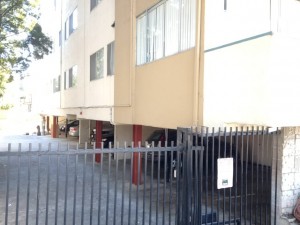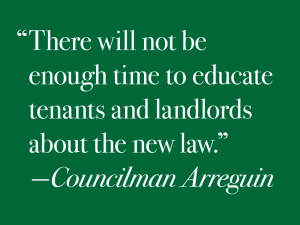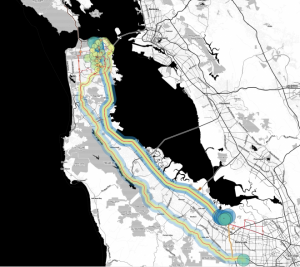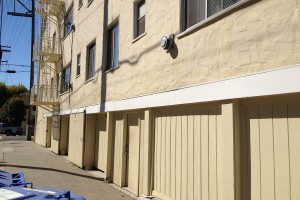Tag: Rent Board
News and Updates
 Date Change: Seismic Retrofits
Date Change: Seismic Retrofits
The Berkeley City Council vote on mandatory Seismic Retrofits for “soft story” buildings is now scheduled for Tuesday, November 19.
Berkeley’s Demolition Law and Recent Zoning Changes
“…this new demolition ordinance draft which paves the way for developers to demolish all of the existing apartments in downtown Berkeley.”
http://www.berkeleydailyplanet.com/issue/2013-10-04/article/41520?headline=New-Berkeley-Demolition-Ordinance-Proposal-Threatens-Rent-Controlled-Housing–By-Stephen-Stine
Brown Vetos Affordable Housing Bill
BTU will report back on how this veto may impact changes to the Demolition Ordinance
http://www.sfgate.com/realestate/article/Brown-vetoes-bill-requiring-affordable-rental-4901709.php
Ellis Evictions Skyrocket: Protests in San Francisco
It won’t be long before the eviction wave comes across the Bay.
http://evictionfreesummer.wordpress.com/
San Francisco Housing Crisis in the New Yorker
SF Mayor says, “We’ve got to…make sure we protect many of the rent-controlled apartments that we have.” With his campaign to relax rules about demolition of rent controlled buildings, we are not sure the Berkeley Mayor would agree!
http://www.newyorker.com/online/blogs/currency/2013/09/at-the-rent-board-new-tales-of-the-city.html?mobify=0
Berkeley’s Progressive Days
At Berkeley History Center on Center Street
http://www.sfgate.com/bayarea/article/Everybody-got-together-in-Berkeley-commune-days-4889254.php
Campaign Update: Seismic Safety – Final Public Hearing
 Thursday, October 10 at 5 PM
Thursday, October 10 at 5 PM
Final Public Hearing on Seismic Retrofits
City of Berkeley Hearing sponsored by ASUC
UC Berkeley Alumni Hall: 2537 Haste Street
Currently, the plan is to allow landlords to pass costs onto tenants if the landlord can claim paying for the retrofit is a hardship. Since Rent Board rules already allow owners to pass costs on to tenants if they are not making a fair return on their investment, these new hardship rules imply that owners who “need” to raise rents for seismic safety are already making a fair return, so where is the hardship??!
REVISED DATE! Tuesday, November 19 at 7 PM
Seismic Retrofits to City Council
Council Chambers: 2134 Martin Luther King Jr. Way
The Rent Board recommendations were posted in a recent BTU update: Rent Board Seismic
The Housing Advisory Commission recommendations: HAC Memo SWOF with HAC amendments
more info:
http://www.ci.berkeley.ca.us/Planning_and_Development/Building_and_Safety/Soft_Story_Program.aspx
Berkeley to Pass Law for Evicting Smokers
On October 1, City Council rejected the long process between the Rent Board and the Health Commission and decided to draft new antismoking legislation on the fly. Staff has to come back with actual language, but it is very likely that Berkeley will make it legal to evict tenants for smoking cigarettes, even if the lease has allowed smoking for years.
The new laws will also apply to owners who live in multiunit buildings, for example an owner-occupied unit in a building which also has rental units, or a condominium. However, owners can’t be evicted, and tenants can!! The City Council keeps saying they want a law that can be enforced, but this latest plan puts the obligation to enforce the law onto landlords. Who will enforce the law against owners who smoke?
 BTU hasn’t taken an official position, in part because the draft that was going to Council last week balanced concerns about protecting housing with the needs of those who are impacted by secondhand smoke. Now one big concern might be that the phase-in period for the law hardly gives long-term addicts the time to successfully quit. Also, landlords are far more likely to enforce the smoking ban against long-term tenants with controlled rents, while not acting to protect other residents from second-hand smoke if the smoker is paying a high price for his or her unit.
BTU hasn’t taken an official position, in part because the draft that was going to Council last week balanced concerns about protecting housing with the needs of those who are impacted by secondhand smoke. Now one big concern might be that the phase-in period for the law hardly gives long-term addicts the time to successfully quit. Also, landlords are far more likely to enforce the smoking ban against long-term tenants with controlled rents, while not acting to protect other residents from second-hand smoke if the smoker is paying a high price for his or her unit.
If you are concerned one way or the other, contacting Linda Maio would be a good place to start. It sounded like she is very in favor of the new rules to define smoking as a nuisance. Email her: lmaio@CityofBerkeley.info
Councilman Arreguin’s Explanation of His Concerns for Tenants:
http://www.berkeleydailyplanet.com/issue/2013-10-04/article/41505?headline=Why-I-Voted-No-on-Second-Hand-Smoke-Ordinance–By-Councilmember-Jesse-Arreguin
Daily Californian Report on Council Meeting:
http://www.dailycal.org/2013/10/02/berkeley-city-council-votes-amend-proposed-smoking-ban/
Renters Around the Bay
 Oakland fights to close rent control loophole:
Oakland fights to close rent control loophole:
Berkeley tenants enjoy protections against bad business decisions by owners. Here, landlords can only passthrough “capital” costs if they were not foreseeable when they set the initial rent or they can’t make a fair return on their investment. In Oakland, their weaker rent control law is further undermined by broad rules which allow landlords who paid too much for a building to then raise the rents to pay their mortgage. Oakland is fighting to close this loophole even as Berkeley tenants could see passthrough rules relaxed so that landlords can charge for seismic retrofits:
“Of the ten major jurisdictions in California that have rent control laws, only four allow landlords to pass on the costs of debt service. Of those four, Oakland is the only municipality that allows landlords to force tenants to pay up to 95 percent of their debt.”
http://www.eastbayexpress.com/oakland/oakland-rent-laws-to-be-debated/Content?oid=3719780#fromMobile
In San Francisco, the rents are too damn high:
The SF Department of Public Health made an interactive map which shows how many full-time minimum wage jobs it takes to pay rent on the average market rate apartment in each SF neighborhood. For example, in the Mission District, it would take 5.5 minimum wage jobs to pay rent on a new 2-bedroom apartment, because market rent is $2,920. The actual median income of the neighborhood is about half of what it takes to pay that rent.
http://www.sfphes.org/news/211-rent-affordability-in-san-francisco
Thoughtful tech industry comments on gentrification, development, and the “Google Bus” phenomena:
“Whichever side of this issue you’re on, it’s clear that we’re looking at a reversal of the historical norm: The workers that used to live in residential suburbs while commuting to work in the city are now living in the city, while the largest technology companies are based in the suburbs and increasingly draw their labor supply from dense urban neighborhoods…That they’re young and educated and lots of them are millionaires is kind of beside the point. It’s about more than gentrification as we’ve experienced it thus far: It’s about an entirely reconfigured relationship between density and sprawl…”
This article contains a really cool map but it doesn’t show that these tech industry shuttles now pick up at MacArthur, Ashby and North Berkeley BART stations as well.
http://www.wired.com/opinion/2013/09/mapping-silicon-valleys-corporate-shuttle-problem/
Nob Hill building with 33 units would be largest Tenancy in Common:
Over in San Francisco, investors would like to use the state Ellis Act to evict rent controlled tenants and turn buildings in condominiums. Only they can’t, because like Berkeley, San Francisco has tight restrictions on how many precious affordable rent controlled units can be turned into condos each year. So speculators turn them into Tenancies-in-Common, which are like condos, only not. Pretty soon investors in Berkeley will be exploiting similar loopholes, so let’s get ready!
http://www.sfgate.com/realestate/article/Park-Lane-tenants-protest-conversion-plans-4853226.php
Meanwhile back in Berkeley, BNC issues strong statement on Demolition Ordinance:
The Berkeley Neighborhoods Council newsletter discusses how revisions to the Demo Ordinance are not only bad for tenants, but also for neighborhood stability:
“This provision puts multiple unit buildings that are well-integrated parts of neighborhoods throughout the city at risk of being demolished for no other reason than a developer sees an opportunity to replace it with a new and bigger building.”
In their September newsletter, BNC reminds everyone that the Ordinance will be discussed November 6 at the Planning Commission.
http://www.berkeleyneighborhoodscouncil.com/Newsletters/2013/Issue2/BNC_eNEWS_2_NNRaA2.htm
Speculators Driving Up Rents in East and West Oakland:
Big national companies are outbidding regular folk and buying up foreclosures all over Oakland’s flatlands, breaking up long-standing African American communities. Some firms just slap a new coat of paint on the “distressed property” and resell them right away, at prices working people can’t afford. Others are offering these homes at San Francisco-type rents, but plan to sell them in five to seven years. Several nonprofits – including Oakland Community Land Trust and Restoring Ownership Opportunities Together –are working to keep owners in their homes, or buy foreclosures and keep them affordable to working people. If you think this is going on in Berkeley, let us know!
http://www.eastbayexpress.com/oakland/whos-jacking-up-housing-prices-in-west-oakland/Content?oid=3726518
Campaign Update: Seismic Safety — Mandatory Seismic Retrofits

This Thursday, October 3, the Housing Advisory Commission will vote on their recommendations to Council regarding the law to require landlords to fix unsound buildings. BTU attended the last HAC meeting to speak about our concern:
Tenants should not have to pay extra rent for safe housing!
The City will hold the final public hearing on the law to require seismic retrofits for Berkeley’s most unstable rental housing on October 10 at 5 PM. Since the first hearing was held over the summer, and so many students live in these “soft story” buildings, the October hearing is cosponsored by Berkeley’s ASUC and will be held on campus but open to everyone. Only five tenants spoke at the July 27 hearing, although more than 40 landlords were present.
On September 16, the Berkeley Rent Board finished their recommendations to Council, which cite many ways that owners with financial hardship could pay for retrofits without raising rents. However, even the Rent Board voted to consider amending rules so that landlords can raise rents! If tenants do not speak out at the meetings listed below, Berkeley tenants could see increases under the new mandatory retrofit rules like those in San Francisco, where rents in unsafe buildings are going up an average of $900 a year!
Seismic Retrofit Recommendations
Thursday October 3 – 7 PM
Housing Advisory Commission
South Berkeley Senior Center
Final Public Hearing on Seismic Retrofits
Thursday October 10 — 5 PM
City of Berkeley Hearing sponsored by ASUC
UC Berkeley Alumni Hall – 2537 Haste Street
Seismic Retrofits to City Council
REVISED DATE November 19 — 7 PM
Council Chambers: 2134 Martin Luther King Jr. Way
City website, including draft law and inventory of unsafe buildings:
http://www.ci.berkeley.ca.us/Planning_and_Development/Building_and_Safety/Soft_Story_Program.aspx
Rent Board recommendations:
Rent Board Seismic
Smoking Law to City Council Tuesday October 1
 The Berkeley Tenants Union has no position on the emerging legislation to make cigarette smoking illegal in all multiunit buildings in Berkeley. This hot issue pits neighbor against neighbor, especially since the City Council’s draft only has one enforcement mechanism: take your neighbor to small claims court!
The Berkeley Tenants Union has no position on the emerging legislation to make cigarette smoking illegal in all multiunit buildings in Berkeley. This hot issue pits neighbor against neighbor, especially since the City Council’s draft only has one enforcement mechanism: take your neighbor to small claims court!
Requests from the Rent Board and other constituents for the city to require mediation have not been included in the rules, which would make smoking in or around their buildings illegal for tenants and condominium owners, even if smoking is allowed in the lease or homeowner’s agreement. Smoking will be prohibited in all new leases.
Possible changes to the current draft of the law which are discussed in the Council report:
- Mandating mediation
- More aggressively enforcing the Ordinance
- Defining smoking in multi-unit housing as a nuisance to allow evictions
- Requiring a registry of units with non-smoking clauses in their leases
- Including medical cannabis smoking
The Berkeley City Council will finally vote on the controversial law at their meeting Tuesday, which begins at 7 PM at 2134 Martin Luther King Jr. Way and will be broadcast on the web, cable TV and 89.3 FM. The current draft does include some increased support for smokers trying to quit.
Our elected Rent Board has been under fire from at least one antismoking advocate. The Commissioners expressed concerns that defining smoking as a nuisance would lead to evictions, pushed for mediation to be mandatory before law suits are filed, and also requested that the city enable their department to provide tracking so prospective tenants would know if they are applying for a unit next door to a smoker and/or if smoking happened during the previous tenancy:
May 7 Smoke-free Housing Council final
Health advocates say the law doesn’t go far enough to protect renters from second hand smoke:
http://www.berkeleydailyplanet.com/issue/2013-05-03/article/41042?headline=All-Indoor-Smoking-in-Shared-Housing-Should-Be-Banned-in-Berkeley–By-Carol-Denney
Council materials, see Item 10:
http://www.ci.berkeley.ca.us/Clerk/City_Council/2013/10Oct/City_Council__10-01-2013_-_Regular_Meeting_Agenda.aspx
BTU Campaign Update: Demolition Ordinance
 Good news on the Demolition Ordinance!
Good news on the Demolition Ordinance!
On September 12, the Housing Advisory Committee voted unanimously to support one-for-one replacement of demolished rent controlled units with permanently affordable housing. They recommended the good June 4 compromise draft over the more recent drafts, which provide incentive for developers to empty buildings of all tenants.
The key vote on the Demolition Ordinance will be the one by the Planning Commission on November 6. BTU will be calling all tenants to come out to the meeting. We need Planning on our side to save Berkeley from the bulldozer.
Berkeley Citizens Action to Join Fall Potluck September 18
Berkeley Citizens Action will join BTU to discuss shared concerns at our Fall Potluck, Wednesday September 18.
Free Tenant Counseling by the Eviction Defense Center at 6 PM !!!
Food and Friends at 6:30 PM. Grassroots House, 2022 Blake @ Shattuck
 UPCOMING DATES OF INTEREST TO TENANTS
UPCOMING DATES OF INTEREST TO TENANTS
Campaign Violations, Berkeley Democratic Club
Thursday September 19 – 7 PM
Fair Campaign Practices Commission
North Berkeley Senior Center, 1901 Hearst Ave @ MLK
Free Housing Counseling for Seniors
Friday, September 20 – 12 PM
Counseling by Berkeley Rent Board
South Berkeley Senior Center: 2939 Ellis Street @ Ashby


